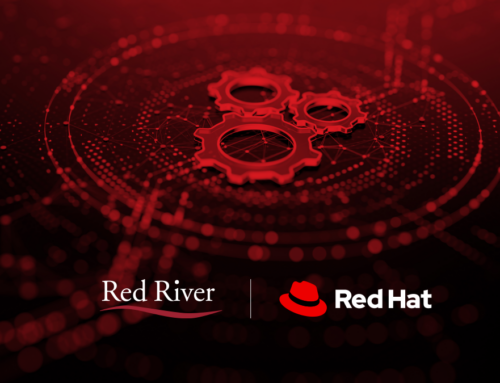
What’s the Difference Between Microsoft 365 vs. Office 365?
You’ve probably heard of Microsoft 365 and Office 365. In fact, you’ve probably heard the terms used interchangeably. Often, they are used as replacements for each other, but they’re very different. Microsoft 365 refers to a broader spectrum of services and platforms that includes Office 365. And though Microsoft Office 365 may sometimes be referred to as “Microsoft 365,” that’s technically incorrect.
Today, we’re going to discuss Microsoft 365 vs. Office 365. Here’s what you need to know.
The Office 365 Suite
“Microsoft Office 365” refers to products within the Office 365 suite. The Office 365 suite is a series of collaborative tools released by Microsoft to make work easier. These include Microsoft Exchange, SharePoint, OneDrive, Microsoft Word, Microsoft Teams and Microsoft Excel. These tools are all designed to work together.
But while they’re designed and developed to operate on top of Windows, that doesn’t mean that they need to. One of the advantages of the most recent suites is that they are cloud-based and can be accessed online. They can also be accessed on different platforms, such as iOS devices, Android devices, Mac computers and Linux computers.
Essentially, the Office 365 suite has been extended to the point where, on a practical level, it’s platform agnostic. So, the Office 365 suite is no longer synonymous with Windows-based computers. This becomes important when we start talking about the “Microsoft 365” platform.
Office 365 remains one of the best collaborative and creative suites for teams. Employees are able to connect anywhere in the world in MS Teams and use systems like Microsoft Word and Microsoft Excel together. At the same time, the Office 365 suite also has to be carefully managed to ensure the effectiveness of collaboration and the security of data.
The Microsoft 365 Suite
“Microsoft 365” refers to both the Office 365 collaborative tool suite and the overall ecosystem of Microsoft 365. That includes the Microsoft Windows operating system and the Enterprise Mobility Suite.
Microsoft has been hard at work improving its operating system, mobility suites and collaborative infrastructure. This is necessary in a world where more employees are operating remotely. The Office 365 suite can be operated through the cloud. Windows makes it easy to move seamlessly from desktop operations to cloud-based operations.
Microsoft 365 supports organizations that want greater levels of both accessibility and security. While the Office 365 suite may be able to be used on different platforms, it really integrates best with the Microsoft 365 ecosystem. This ecosystem has been built around the Office 365 suite and in support of it.
And there are other advantages to using a Windows system. Windows systems have greatly improved accessibility support and security. They are continually being updated to provide better security patches and additional features for remote work and collaboration. When leaning on the Office 365 system, the platform operates seamlessly.
Microsoft 365 vs. Office 365: Is Microsoft 365 the Same as Office 365?
If Microsoft 365 includes Office 365, what is the difference between Office 365 and Microsoft 365?
Office 365 can actually be used independently from Microsoft 365. You can install Office 365 on a Mac computer, for instance, or access its cloud-based features and functionality on a Linux machine. So, Office 365 isn’t actually dependent on Microsoft 365, even if the Microsoft 365 ecosystem includes it.
Further, Microsoft 365 really isn’t the same as Office 365 because it includes the operating system and enterprise suite, two platforms with some serious functionality. When you refer to Microsoft 365, you’re referring to the operating system itself, which has a significant impact on the ecosystem as a whole.
It may seem like semantics, but it’s not. It’s important to understand the differences when looking up systems, when troubleshooting them and when finding out more information about how to upgrade, optimize and configure them. And it’s important from a planning and architecture point-of-view, too. Do you want to invest in an entire Microsoft 365 infrastructure? Or are you only interested in Office 365?
Now it should be clear what the differences (and similarities) are between services like Microsoft 365 E3 vs. Office 365 E3. But regardless of the distinction, having an Office 365 (or Microsoft 365) installation can be quite powerful for an organization.
If your company is interested in switching over to a Microsoft 365 ecosystem (or if you need help maintaining and improving your existing ecosystem), we can help. Red River is a FastTrack ready partner that will help you successfully deploy and drive end user adoption of Microsoft 365 solutions like Office 365, Windows 10 and Enterprise Mobility + Security (EMS). Contact us today to learn more about our Microsoft 365 managed services.

written by
Corrin Jones
Corrin Jones is the Director of Digital Demand Generation. With over ten years of experience, she specializes in creating content and executing campaigns to drive growth and revenue. Connect with Corrin on LinkedIn.




